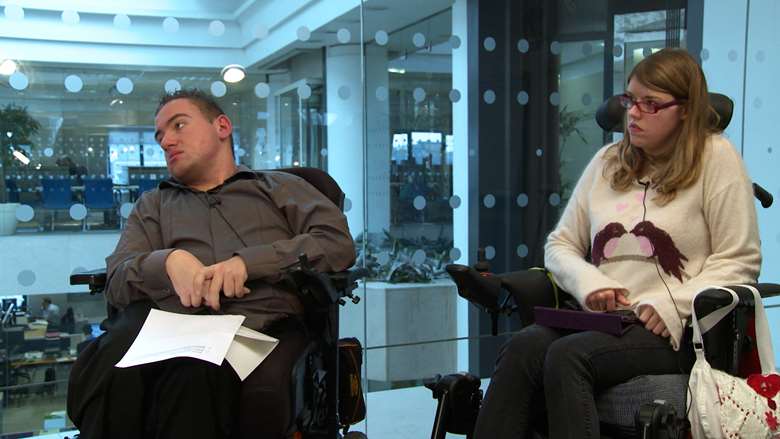Participation in Action: Disabled young people have their voices heard at the DfE
Gabriella Jozwiak
Tuesday, March 5, 2013
Disabled young people get the chance to put questions to the children's minister about SEN and disability reforms

“Disabled young people are not often given the same opportunities to participate in decision making as non-disabled young people,” says Pamela Shaw, senior participation officer at the Council for Disabled Children. But attempts to change this are afoot. Civil servants have been taking advice from a 16-strong group of young people, to inform government plans to overhaul special educational needs (SEN) and disability provision for young people.
More than 150 young people applied to be part of the scheme, known as Epic (equality, participation, influence, change), when the Council for Disabled Children and the Department for Education launched the project last year.
Since then, the group of 14- to 25-year-olds has met twice with DfE officials to discuss how the Children and Families Bill, which includes the SEN reforms, will affect them.
Following the publication of the bill in February, two Epic members went to interview children’s minister Edward Timpson at the DfE’s offices in Westminster. Katy Evans, 22, and Rich Amos, 25, quizzed the minister about how the government’s plans would benefit young people with SEN and disabilities, and voiced concerns around funding for provision. The whole Epic group agreed on the questions for the minister in advance, by discussing the issues on Facebook.
Timpson told the pair that the government’s SEN reforms would give young people more control over their support. For example, he said that in future, once children with SEN or a disability reach 16, they will be able to request an assessment or appeal a decision about the provision they receive. Katy asked the minister if funding would be available for disabled students who wanted a place at a residential college. Timpson assured her that one of the legislation’s aims is to provide “as much choice as possible” for such placements.
After the meeting, a video of the interview was posted on the Epic website for other young people to watch.
Inclusive views
Katy was pleased with how the meeting went. “I think the minister’s answers were positive and he seemed to highly value the need to include the voices of disabled young people in decision-making,” she says. Rich says it is important for the government to hear their concerns: “We hope these views have challenged the thought process of some of the decisions, and we’re pleased knowing Epic has a direct route into the DfE to express our views.”
Shaw, who supports the Epic group, says that despite the success of the project, more needs to be done to help young disabled people’s voices be heard. “Groups like Epic provide great opportunities for disabled young people’s views to get heard, but we want to see more national and local opportunities for all disabled young people to be involved in discussions to guarantee a future system is one that works best for them.”




